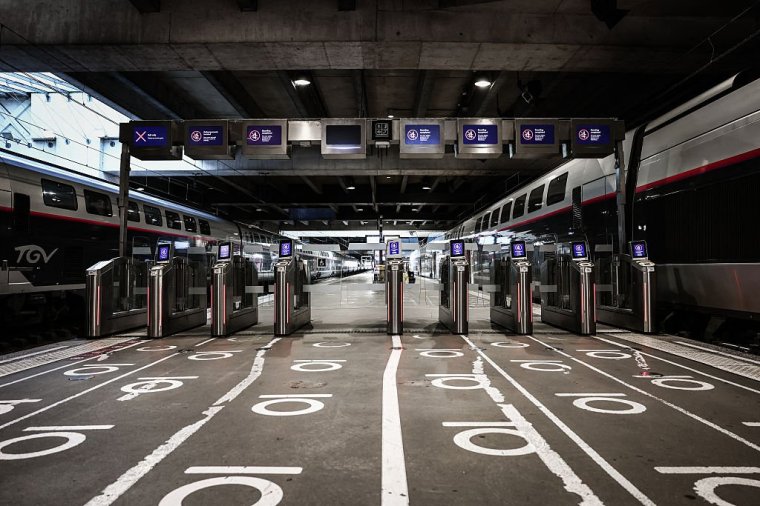After a busy but largely undisrupted summer, industrial action is ramping up across Europe
Schools are back and summer crowds are dispersing from Europe’s hotspots. Largely, the peak holiday weeks unfolded without major drama.
However, holidaymakers chasing early autumn sunshine in Europe may find their plans disrupted by strikes across the continent. Here’s everything you need to know about industrial action scheduled to take place in France, Italy, Spain and Portugal this week and for the remainder of the month.
France
There is a grassroots call for a day of national protest on Wednesday (10 September), against Prime Minister François Bayrou’s proposed austerity cuts. A vote of confidence in his government takes place today, so plans to paralyse the country by boycotting major institutions and implementing blockages could change.
New FeatureIn ShortQuick Stories. Same trusted journalism.
Should it go ahead, visitors can expect large demonstrations and acts of civil disobedience in big towns and cities, as well as strike action and blockades.
While not all unions are not expected to participate, eight of the largest have collectively called for a subsequent day of strikes and demonstrations on 18 September in protest at the government’s proposed cuts.
Air traffic controllers represented by the SNCTA union are among those planning to walk out on 18-19 September. Passengers should expect cancellations and disruption to services, both to and over France, and should keep up-to-date with developments with their airline.
 Train services are likely to be affected in France (Photo: Thibaud Moritz/AFP)
Train services are likely to be affected in France (Photo: Thibaud Moritz/AFP)
There is likely to be further disruption on the RATP public transport network in Paris as well as other parts of the SNCF national rail network.
Eurostar has said that it does not expect the action to impact its services but acknowledges that this could change.
Italy
Strikes cannot take place in Italy during peak summer weeks. However, they have resumed this month with a series of walkouts by airport and airline staff across the country.
After a nationwide rail strike on Friday 5 September and strikes at Catania airport and Milan Linate, as well as ground handling staff walkout at Florence and Pisa represented by the CUB union on Saturday, further action is scheduled for this month.
This is due to take place on Sunday 14 September at Milan Linate and Malpensa airports by ground handlers with a wider national strike planned for 26 September.
Spain
Workers for Ryanair’s baggage handling company in Spain, Azul Handling, represented by the UGT union, are continuing to walk out at airports this month.
Ryanair claims that the ongoing industrial action – scheduled to take place on Wednesdays, Fridays, Saturdays and Sundays until the end of the year – has so far had no effect on flight operations. However, customers should be prepared for delayed departures.
Portugal Cancellations and flight delays at Lisbon airport have been ongoing while workers of Menzies Aviation have been striking (Photo: Horacio Villalobos /Corbis via Getty)
Cancellations and flight delays at Lisbon airport have been ongoing while workers of Menzies Aviation have been striking (Photo: Horacio Villalobos /Corbis via Getty)
There is also ongoing industrial action at Portuguese airports. Union Sima has issued notice of strikes that could run until the start of 2026 for its Menzies Aviation ground handling workers (who work across check-in, baggage, maintenance and more).
The current wave ends at midnight on Tuesday (9 September), with the next action due to take place 12-15 September, continuing over weekends until the end of the year.u
Previous action during the summer caused delays and cancellations to flights to and from Portuguese airports, with Lisbon the most adversely affected.
Your rights and how to prepare
Disruption caused by strikes that are not directly organised by transport providers such as airlines does not usually entitle passengers to compensation, since it is beyond their control.
However, they do have a duty of care to passengers whose journeys are delayed or cancelled. While you wait for a delayed flight of two hours or more (depending on how far you are flying), airlines must provide care and assistance, such as food and drink and accommodation if the delay is overnight. If this is not offered by your airline, you can organise this yourself and submit a claim for a refund with receipts (which must be reasonable).
If you are delayed by more than five hours and no longer want to fly, you can cancel your flight and demand a refund.
If your flight is cancelled, the airline has an obligation to get you to your destination at the earliest opportunity, on the next available flight (which could be with a different carrier).
If your flight is likely to be adversely affected by baggage handling strikes, you could consider travelling with hand luggage only to minimise any potential disruption.
Trains have similar policies. For example in France, if your train is cancelled you can exchange your ticket free of charge for another date, or cancel your ticket and get a full refund. However, a cancelled services does not automatically cancel a ticket – holders should actively exchange or cancel their journey.
